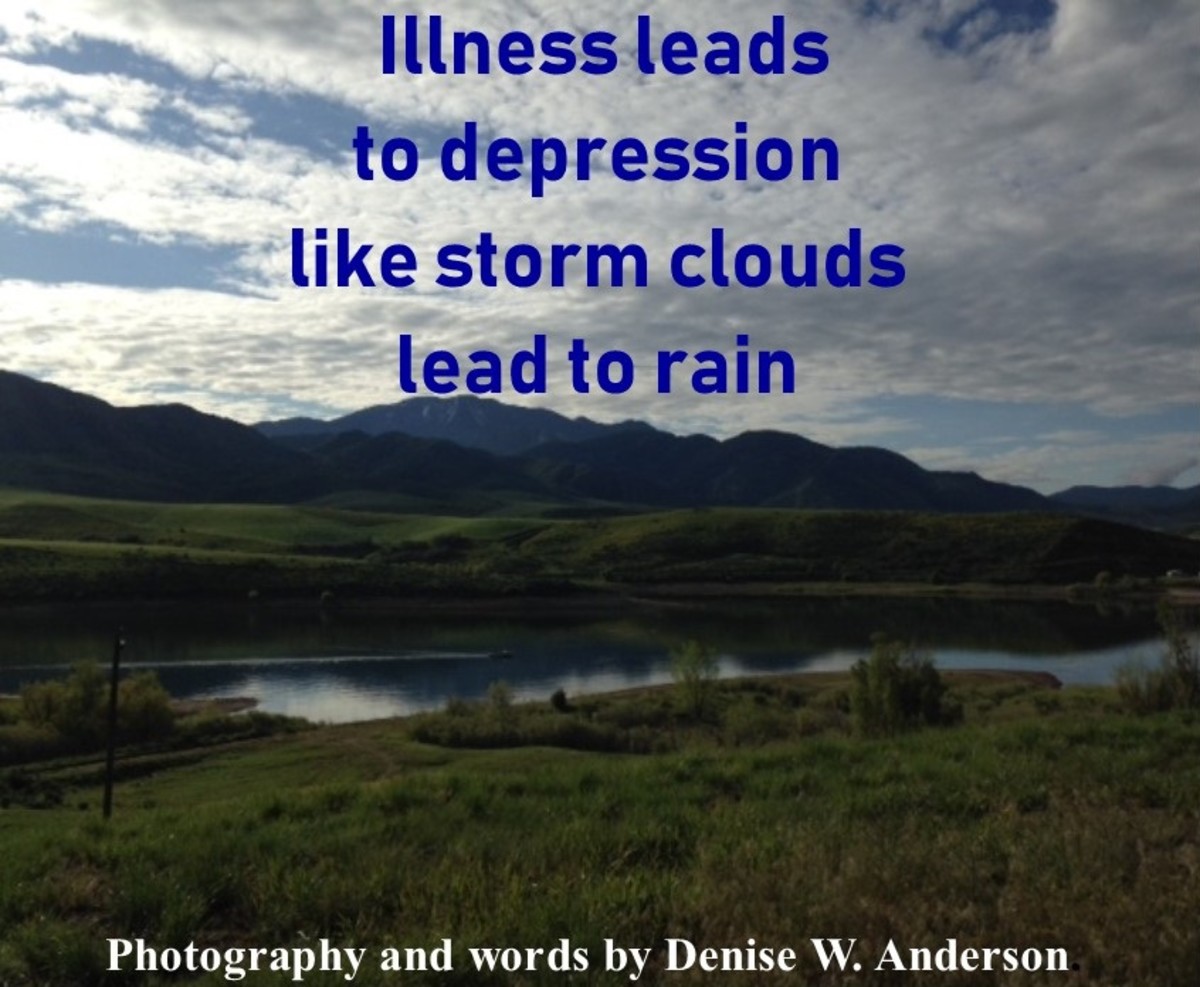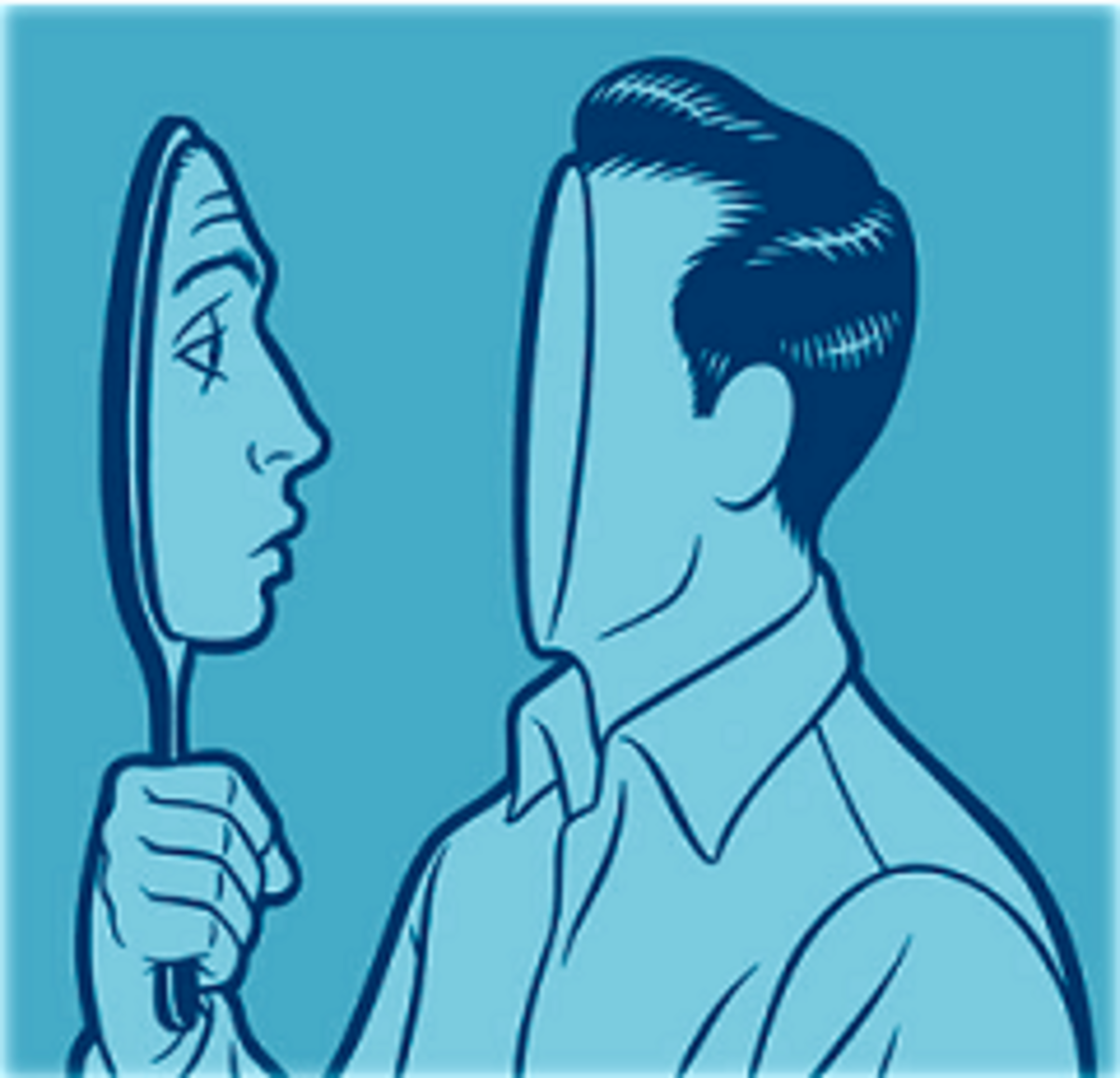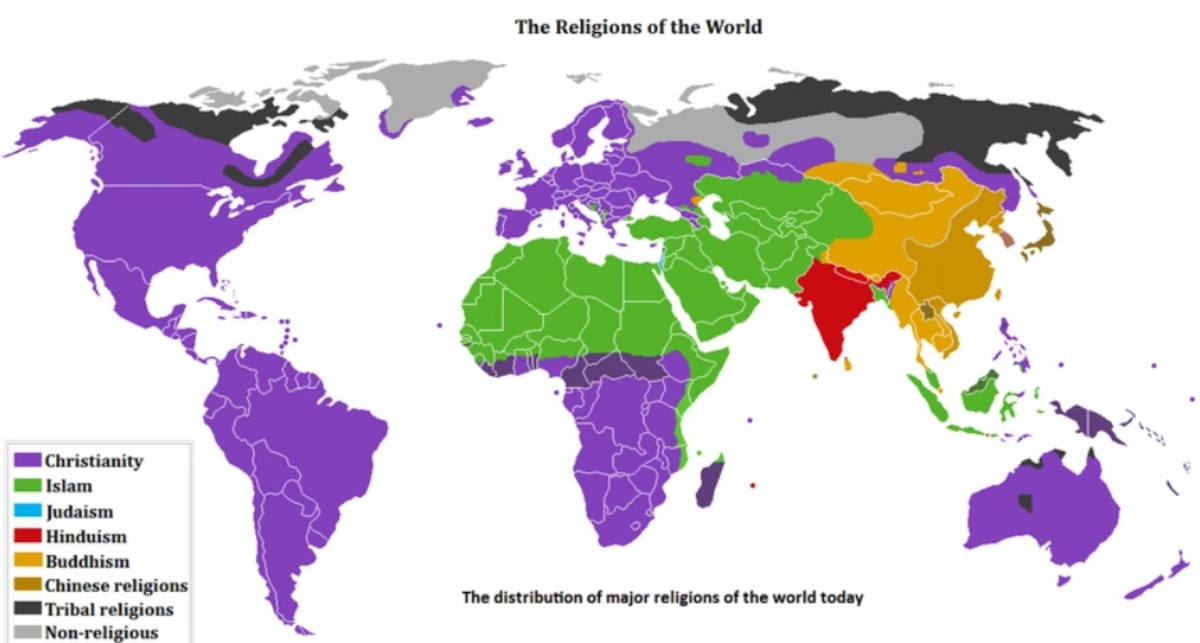The Self Notion: Hindrance to a Clear Mind
What is the main hindrance to a clear mind? From birth we build up our self-view, which is heavily influenced by our personal experiences and by the external environment. This self-view very often becomes rigid, assumes permanence, and discriminates against things and people that we do not like.
The bigger the self-view, the more we suffer. It is because the natural and inevitable sufferings of life are inappropriately magnified by the self notion. It is why, when we are moving towards old age, we go to great lengths to maintain our physical appearance rather than our physical health, not to mention our mental health. There is a mix-up in our priorities.
As human beings, we like stability and continuity because the human race survives better in a safe and secure environment. A happy child is believed to be one who is brought up in a stable environment. All of the child's sense-bases are open to contact and stimulation, which generates a sense of continuity and security, like the daily routines of meal times, play times, and sleep times provided by the same carers.
However, the truth is that all phenomena are unstable and impermanent. For example, a child eventually has to leave home for school. The first day of school generates varying degrees of separation anxiety for all children and is even painful for some. A child's unhappiness arises because new circumstances arise. He is taken away from his old environment. To help him cope, parents, teachers, and even old toys all play a part, but what is most important is that the child lets go. In that way he will eventually settle down in the new environment.

A baby begins to develop the sense of self very early in life when he starts seeing himself as a separate entity from her mother or mother substitute. Modern research points to a definite self-identity by the time a baby is only six months old.
Looking back at our own upbringing, we can see the many external things, ideas, and teachings which have shaped our internal development of the self. This sense of self is important for our existence in the physical world. We need to protect ourselves from physical danger and to continue the human race. Our self-image has a strong bearing on our psychological state.
A self-image that is compatible with expectations will boost our psychological well-being, while a self-image which cannot stand up to expectations will be very undermining. Since circumstances are always changing, if we measure our self-image against all these factors, we shall find it hard to come to terms with ourselves.
We are affected too much by the ever-changing trends of fashion, by expectations and by ideologies. Our mind is constantly in a state of flux, like a monkey jumping from one branch to another without any peaceful moments. Can such a self-notion be the source of true happiness?
Life is happier with a smaller self
Ajahn Sumedho says that to nourish the self, there are three kinds of desire:
- desire for sensual pleasure,
- desire to become, and
- desire to get rid of.
The first is for sensual pleasure via the body or the other sensees. It is the constant seeking of things to excite or pleas our senses. The second desire is tied to ambition and attainment. It is the sense of wanting to become something other than what we are right now. The third desire often arises when we are disillusioned with what we are; then we want to get rid of undesirable things in order to become what we want.
Desires, like all other phenomena, arise and cease. If we perpetuate our desires and cling onto them, our inner peace and happiness will be undermined. To let go desires, we need to recognize them but not identify with them. Letting go desires, we will tone down our SELF-notion and be happier people.
A sense of "I" is inevitably tied to a sense of "You or Others". This dualistic mind of ours makes us compare discriminate /defend or take side. It is like adding fuel onto our pains and sufferings. How often do we feel upset if we cannot keep ourselves up with others in their achievement? How often are we disturbed by people who do not have similar disposition, views, and background as ours? How flattered are we when people side with us in what we are advocating?
If we treat people and things with this dualistic mind, even our kind acts can be imbued with a certain degree of selfishness. We may offer someone a kind word or a helping hand with the hope of some form of payback, even if it is only a sense of personal gratification r adding another number to the people we have helped.
How often do we say we love someone with our whole heart? When that love is not returned, our love can turn into jealousy and anger. Our kind and loving acts were tainted in the first place if we acted out of a dualistic mind, which saw "Others" or the external world as something from which to gain benefit to boost our self-image or to discriminate against in order to protect the same self-image from diminishing. Will we enjoy inner peace and harmony if we act on such a dualistic mind?
The Five Precepts: Playing a Responsible Role
All things are mutually dependent. As part of this system, we have a responsible role to play. To enable us to live in harmony with other beings in this world there are five very basic precepts we have to observe. These precepts work to protect ourselves as well as others.
People in prison have violated the five precepts in one way or another. For instance, those who have committed murder, manslaughter or assault have violated the precept against killing. Those who are guilty of corruption or robbery have violated the precept against stealing. Pornography, rape, abduction, and prostitution are all examples of violating the precept against sexual misconduct. Blasphemy and cheating violate the precept against lying. The precept against intoxicants includes alcohol, heroin, cocaine and other illegal drugs. All of these, damage the mind's cognitive abilities and lead one to do irrational acts which will result in moral and lawbreaking.
If we can internalize the spirit of the precepts, we shall not be driven by impulses and desires. Our mind will remain calm and clear and our concentration will develop. We shall be able to see the rising and ceasing of our thoughts, how deluded our thoughts are, and how they affect us.
All beings need harmony and peace to co-exist
With a clear mind, we shall be able to see the true nature of both our thoughts and other phenomena, and wisdom will dawn on us. With the invention of cell phones and the internet, we are more wired together than ever; yet the excitement of the senses has become so heightened with all these new inventions that we are often unable to concentrate and reflect. It is easy to see why disorders such as Attention Deficit Disorder are on the rise.
If we are unable to concentrate, we shall not develop a clear mind with which to contemplate. If we cannot see the true nature of things, we become slaves of circumstances and get trapped in our self-view. The deluded mind exists in a latent state as self-consciousness, which is manifested as conceit, self-criticism or as selfish physical or verbal activities. It requires a clear mind to reflect on how we act, speak and think in order to develop insight into this latent state of the mind and our habitual mood swings.
Summary
Our sense of self has its practical uses: the two major ones are protecting our survival and boosting our self-confidence. However, the self can be unduly magnified with desires: for sensual pleasure, to become somebody important, and o get rid of undesirable things.
It is like mixing mud in a glass of clear water. Our mind will be blurred by a self-notion inflated by desires. Suffering arises when we assume permanence for a self-image and look at this world with a dualistic mind where there is an "I" and "You or Others" to compare, to discriminate against or to defend.
We cannot survive on our own since we have to depend on so many people and things for our existence. From the viewpoint of the law of dependent origination, we should be always thankful and hold ourselves responsible for keeping our world a safe, fair and harmonious place to live in.
The five precepts of not killing, not stealing, not committing adultery, not lying and not taking alcohol/drugs are derived from this sense of responsibility. They are like rules in a game which bind players together to conduct a fair and safe play. The spirit of these precepts is to protect us from harming ourselves.
Other people and things by curbing impulsive and irresponsible behaviors so that our self-image is not unduly inflated and we can develop a clear mind to see the true nature of phenomena. Life will be happier if we live in a safe an responsible way.









